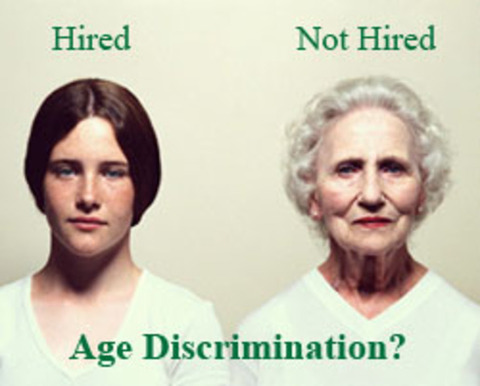Website Design and Internet Marketing
Website Design and Internet MarketingWebsite Design and Internet Marketing
Website Design and Internet MarketingTop 10 types of discrimination in workplace
Discrimination Employment Occurs When An Employee Or Job Applicant Is Treated Unfavorably Due To Their Race, Skin Color, National Origin, Sex, Handicap, Religion, Or Age.
It's illegal to discriminate in any aspect of employment, so workplace discrimination extends beyond hiring and firing to discrimination which may happen to someone who's currently employed.
Additionally, Title VII of the Civil Rights Act of 1964 makes it unlawful to discriminate in hiring, discharge, promotion, referral, and other aspects of employment, on the basis of color, race, religion, gender, or national origin.
10 Different Kinds of Employment Discrimination
Workplace discrimination occurs when an individual is negatively discriminated against job applicants may also be discriminated against due to disabilities, genetic information, pregnancy, or due to their relationship to another individual.
Review this listing of the various kinds of employment discrimination, examples of workplace discrimination, and strategies for handling workplace discrimination difficulties.
Age Discrimination Is A Clinic Especially Protected By Law. With A Few Rare Exceptions, Most Companies Are Prohibited From Establishing An Age Preference In Job Advertisements. Employees Must Get The Same Benefits Irrespective Of Age, The Sole Exception Being When The Cost Of Supplying Supplemented Benefits to young workers is just like like reduced benefits to older employees.
Additionally, age discrimination in apprenticeship programs or internship opportunities is prohibited.
It's illegal for employers to discriminate based on a person's religious customs. Businesses must reasonably accommodate an employee's religious beliefs, as long as doing so does not have excess negative consequences for the employer.
Also, businesses are prohibited from lowering one sex's salary to be able to equalize pay between women and men.
Racial or ethnic discrimination in the workplace can rear it in the ugly head in a variety of forms, some of which can be beaten or obvious. But racial discrimination can often be subtle and more difficult to detect, such as an employer's failure to hire or promote a Whichever form it takes, however, racial discrimination in the workplace is strictly prohibited by a number of federal and state laws.
This form of employment maltreatment can happen in any aspect of employment, from hiring to termination. Fortunately, employees are protected by various federal and state Under both Title VII of the Civil Rights Act of 1964 and the California Fair Employment and Housing Act (FEHA), covered employers are not allowed to discriminate, harass, or retaliate against any employee or applicant on the basis of race or color.
Employers have to handle pregnancy in precisely the same way that they are managing a temporary illness or other non-permanent condition that that demand special consideration.
Job seekers have the very same rights as workers, and both are protected by the Pregnancy Discrimination Act (PDA) passed in 1978.
National origin discrimination involves treating people (applicants or employees) unfavorably because they are from certain countries or part of the world, because of ethnicity or accent, or because they appear to be certain of ethnic background (even if they are not).
National origin discrimination also can involve treating people unfavorably because they are married to (or associated with) a person of a certain national origin.
Discrimination can occur when the victim and the person who inflicted the discrimination are the same national origin.
8- Hostile Work Environment
A hostile work environment is created when discrimination or harassment interferes with an employee's work performance or creates a difficult or offensive work environment for an employee or group of employees.
9- Unlawful Discrimination and Harassment
It is important to remember that discriminatory practice can happen in any employment. It's also to the employee to make assumptions based on race, sex, or age-related stereotypes, and it is also unlawful for an employer to assume that a worker might be incapable because he or she's disabled.
Unlawful discrimination also includes harassment based on legally protected personal traits, such as (but not limited to) race, additionally, employers are prohibited from withholding, sex, age, and religion.

10-Employment Discrimination Complaints
Additionally, it's illegal for some employer to retaliate against someone that has registered a complaint about discrimination or participated in an investigation.
While not all negative treatment constitutes unnoticeable discrimination, any employee who experienced workplace discrimination may file a complaint with the EEOC (The Equal Employment Opportunity Commission). Here's how to file an employment discrimination case.
Get a Free Case Review
There are often strict timelines for reporting and filing claims of racial discrimination, so if you feel you have been discriminated against, do not hesitate to contact an employment attorney in your area to discuss your situation.








